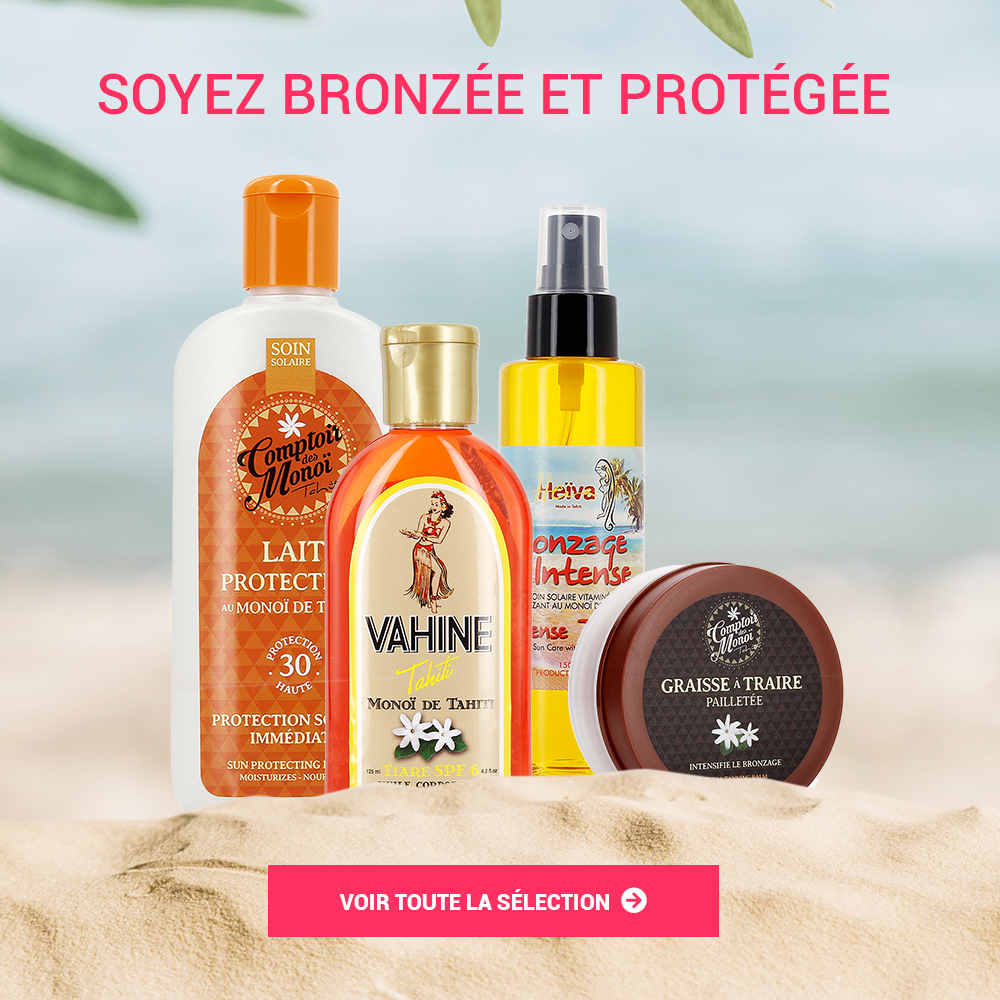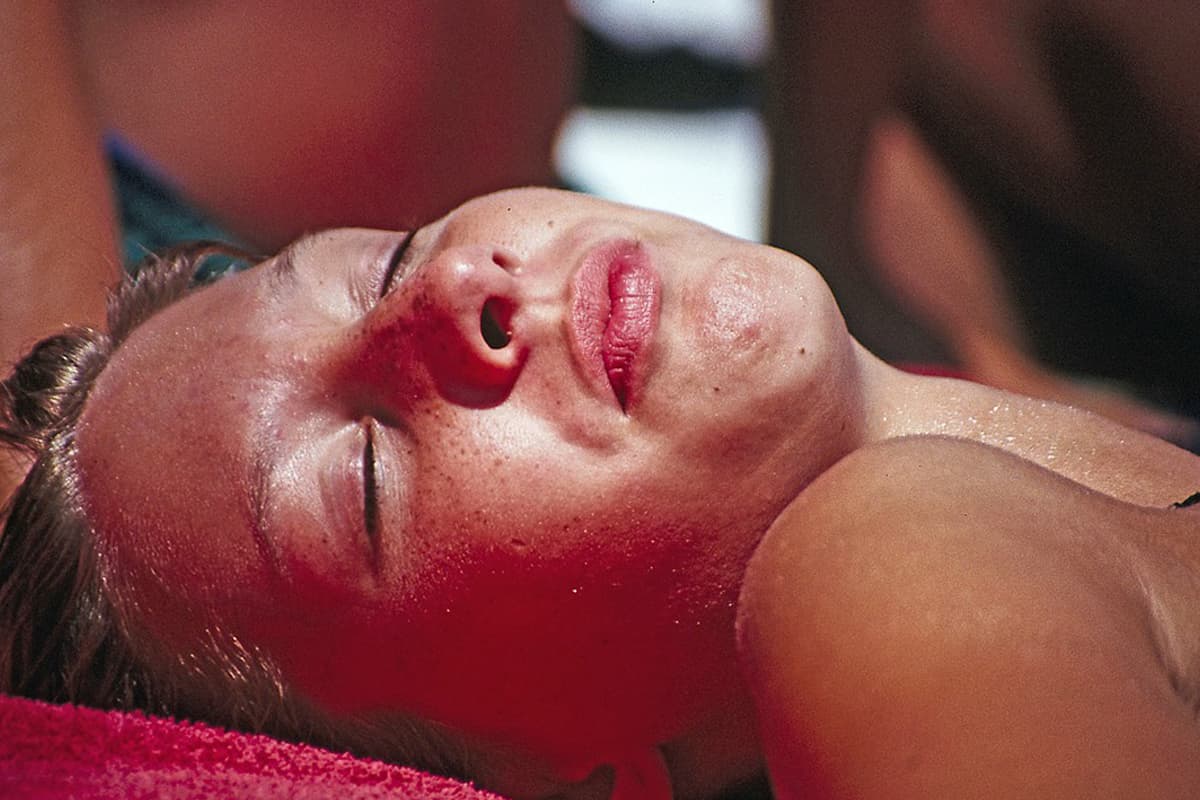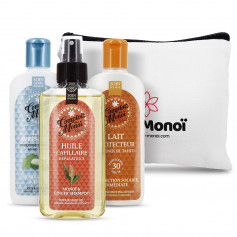Bronzing with monoi: caution, danger!
Urban legend has it that monoï is a tanning oil. Sure, it smells like vacation, but it's not. In fact, it's extremely dangerous to expose your skin to monoï. Here's how it works.
Monoï doesn't protect against UV rays
Monoi oil immediately conjures up images of sandy beaches, turquoise seas and coconut palms. Although it's a vahine's best friend, monoï is in no way a tanning oil. In fact, no Polynesian would even think of sunbathing with monoï!

Monoï has no UV filter. In this sense, it is not at all effective as a "sun cream", or even as a tanning oil. In fact, applying monoi to the skin before exposure to the sun could literally bake the skin. As it attracts the sun's rays, the skin will quickly redden, then dehydrate and burn. In extreme cases, blisters may even appear. The sneaky thing is, it's almost impossible to feel when your skin is burning. It's only afterwards, once it has already done so, that the unpleasant burning sensations are felt.
In other words, monoi is not a sun oil, nor is it a tan gas pedal like its cousin, milking grease.
Fair skin, sun and monoi: an explosive cocktail
People with white or very white skin should really avoid exposing their bodies to the sun with monoi. In fact, the reverberation action is tenfold on fair skins, leading to even worse damage than on dark skins.
The sun is directly attracted by the oily film and acts like a mirror or magnifying glass on the epidermis. In this sense, fair skins will be burnt, sometimes even violently, by exposure to the sun with monoï.
On the other hand, monoï is an excellent after-sun care for all skin types, especially the fairest and most fragile. It deposits a natural, nourishing and protective lipidic film to deeply moisturize the skin and compensate somewhat for the sun's aggressions. To achieve this, it should be applied to damp skin after sunbathing or showering.

Monoi and undesirable effects on hair
Many women mistakenly believe that monoi protects hair from sun exposure. This is why they coat their hair with the precious oil, without suspecting for a second the damage it causes..
In fact, like all oils, monoi attracts the sun's rays and, as on the skin, acts as a reverberant agent. As a result, many women end up with discolored hair. The sun attacks the hair through the oil and burns it. This is how brunettes become redheads or coppers, chestnuts turn blond and blondes almost white.
Be aware that this type of bleaching deeply damages the hair, and can even kill it. In this case, it's best to cut off the entire length of bleached hair, to restore strength and softness to the whole head.
Monoi, on the other hand, is an excellent after-sun treatment for hair. A weekly overnight mask should deeply nourish the fiber!

 en
en 







